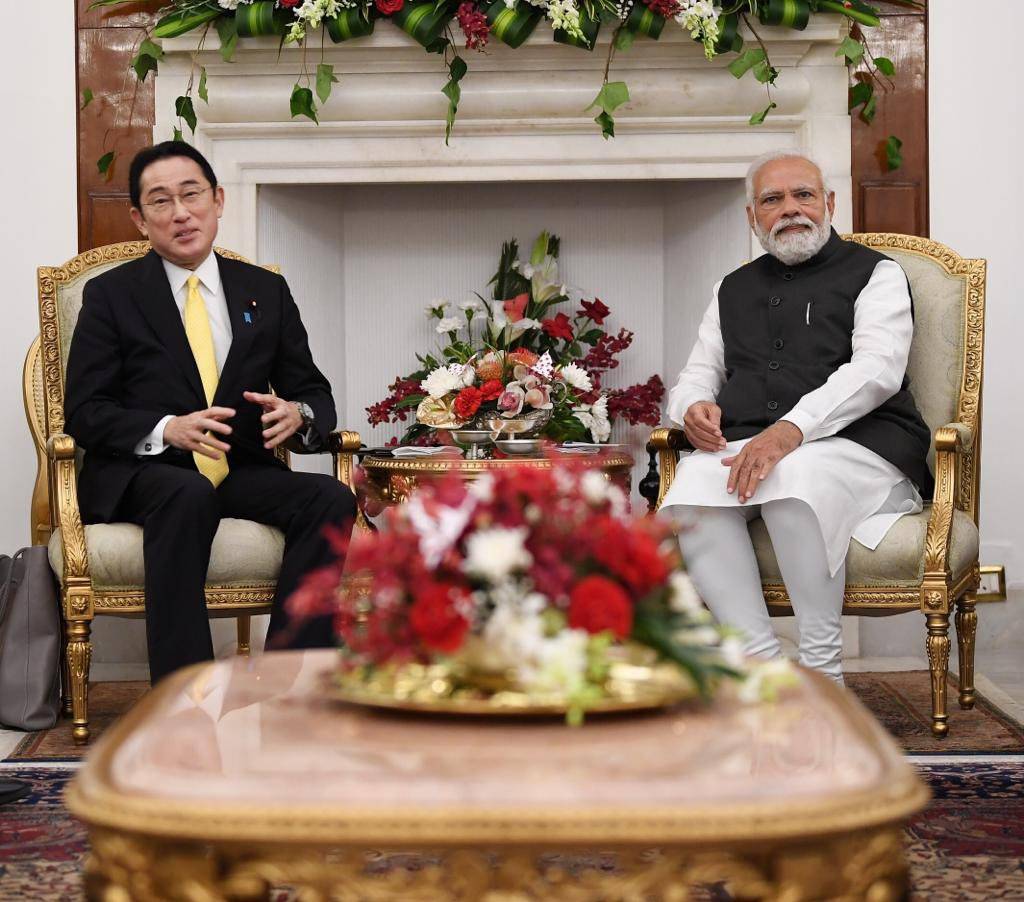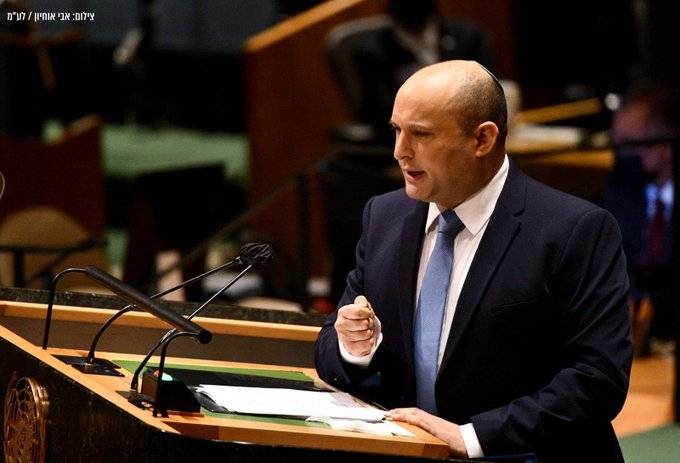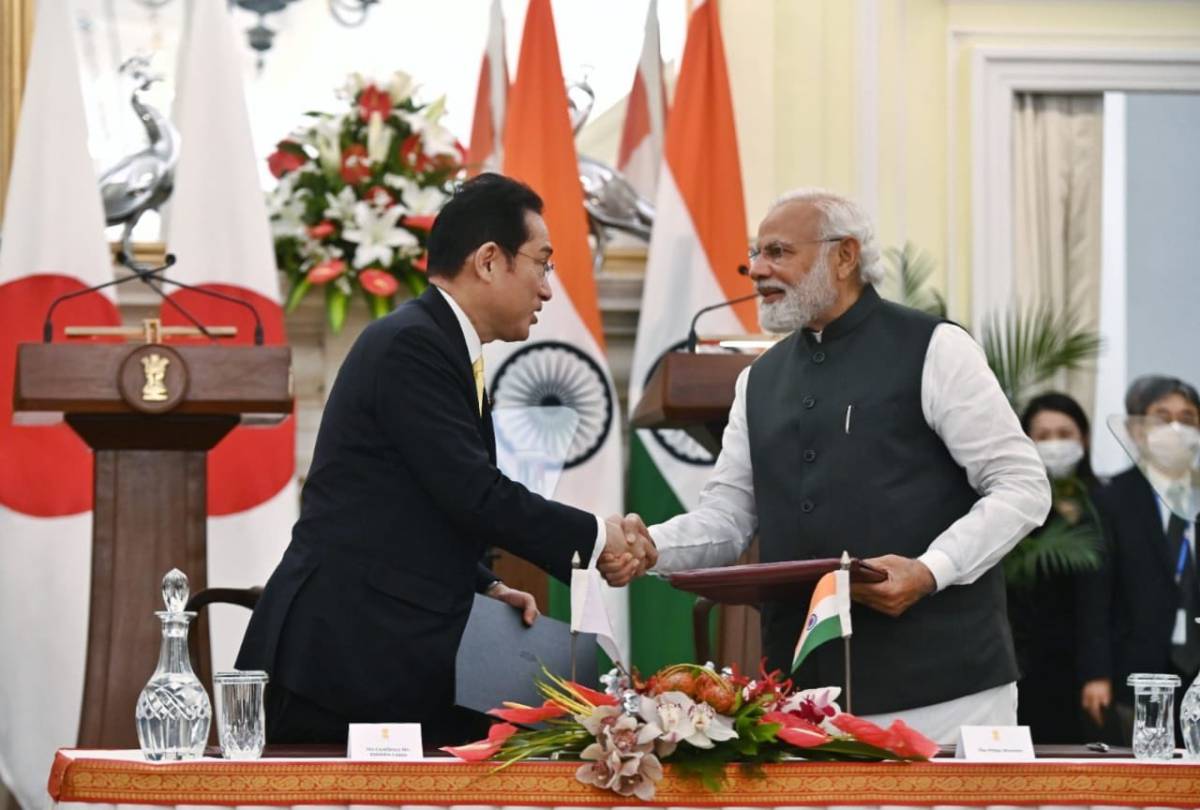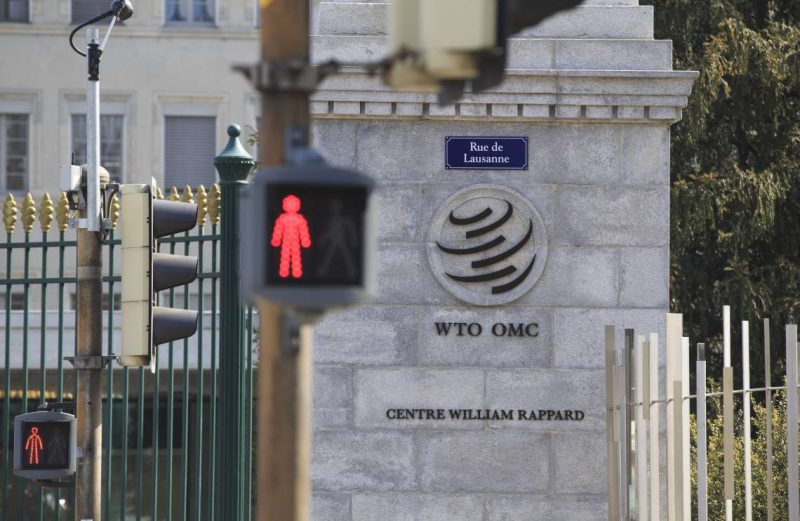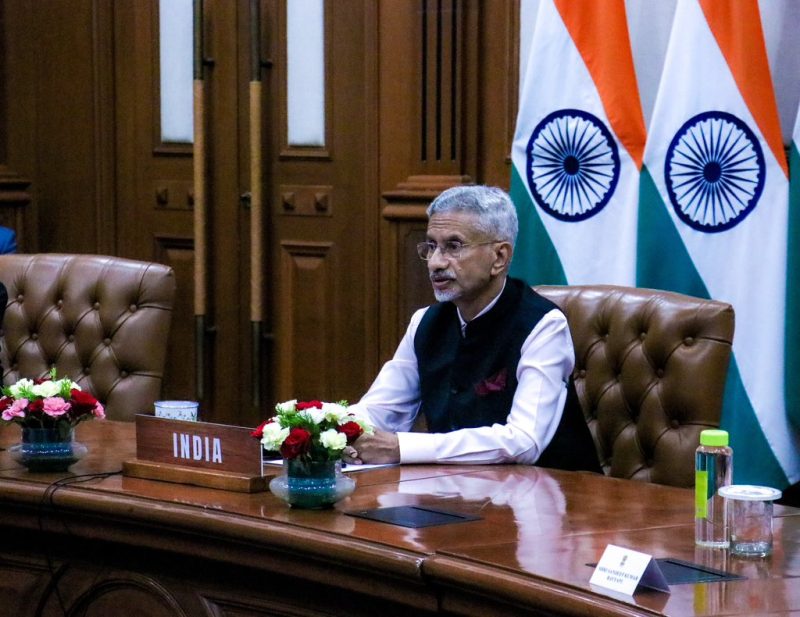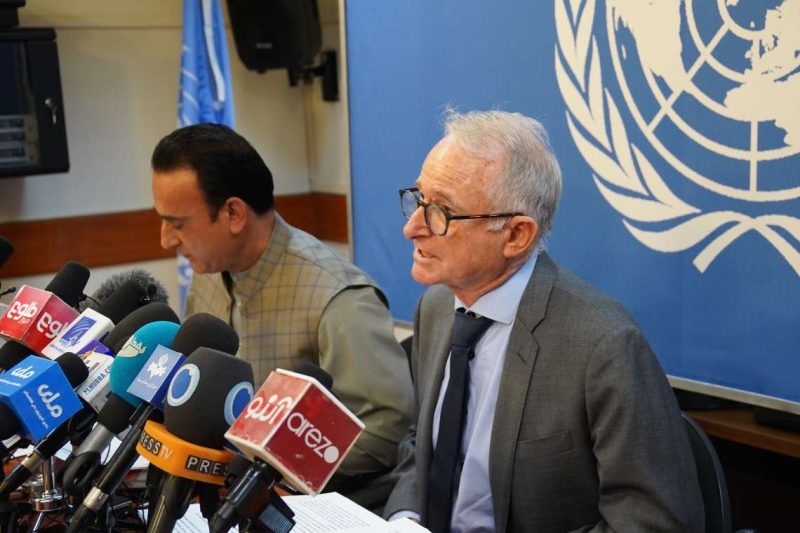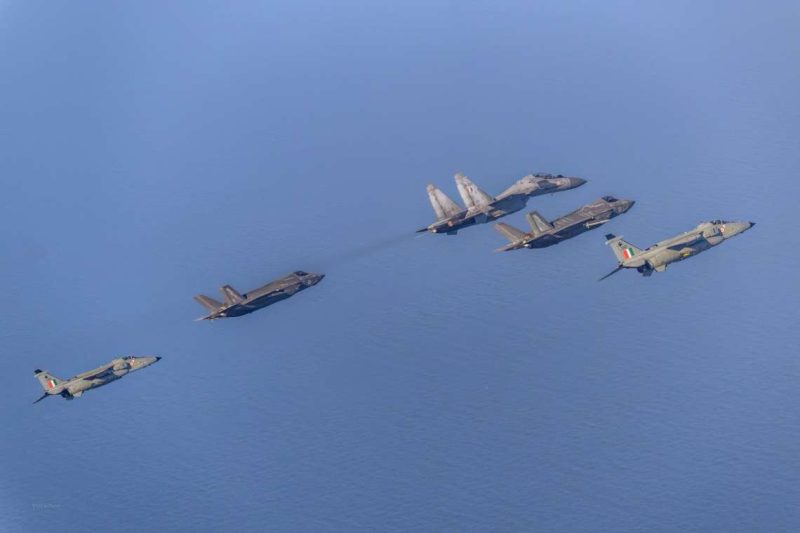Japan announced a plan to invest 5 trillion yen ($42 billion) in India over five years…reports Asian Lite News
With Prime Minister Narendra Modi listening, Japanese Prime Minister Fumio Kishida Saturday called out Russia’s aggression against Ukraine, describing it as a “serious development” that has “shaken the foundation of international order”.
Modi, who held talks with Kishida at Hyderabad House in New Delhi, did not mention Ukraine directly and referred to “geopolitical developments”.
“Geopolitical developments are presenting a new set of challenges. In this context, the deepening of India-Japan partnership is not only important for the two countries, but also for the Indo-Pacific region and will encourage peace, prosperity and stability for the world,” Modi said, adding that they also exchanged views on regional and global issues.
At a briefing after the meeting of the two leaders, Foreign Secretary Harsh Vardhan Shringla said the Prime Ministers also discussed the China-India border standoff in Ladakh.
Japan announced a plan to invest 5 trillion yen ($42 billion) in India over five years.
This follows from the Investment Promotion Partnership of 2014 when both sides agreed for JPY 3.5 trillion investment during 2014-19. That target has been met, taking into account the Official Development Assistance and investments from Japan. The new target will provide scope for greater involvement of Japanese companies in the Indian economy.
The joint statement said that the Prime Ministers noted with appreciation that since the elevation of ties to a Special Strategic and Global Partnership, there had been significant growth in economic cooperation.
“They expressed satisfaction that the investment target of JPY (Japanese Yen) 3.5 trillion announced in 2014 has been achieved. Noting steps taken by India to improve the business environment for Japanese investors in India, as well as other measures to boost economic growth and improve ease of doing business, they expressed their shared intention to realize JPY 5 trillion of public and private investment and financing from Japan to India in the next five years, to finance appropriate public and private projects of mutual interest,” it said.
The two sides signed pacts on cyber security and announced a clean energy partnership.
They agreed to convene a two-plus-two meeting between their Foreign and Defence ministers at the earliest.
They also signed pacts on loans to the tune of Rs 20,400 crore for projects in connectivity, water supply and sewerage, horticulture, healthcare, and biodiversity conservation in different states.
After meeting Modi, Kishida, on his first visit to India as Prime Minister, said, “Russia’s invasion of Ukraine is a very serious development which has shaken the foundation of international order. I have expressed my views to Prime Minister Modi. I conveyed that unilateral attempts to change the status quo by use of force should never be allowed in any sphere.”
Japan’s comments are in sync with its position articulated during the Quad leaders’ summit — it has joined hands with the US and Europe to condemn Russia’s actions and has imposed sanctions as well.
He said Modi and he agreed that “peaceful solution is needed for all problems as per international law”. And in view of these developments, he said, both countries should make efforts for a free and open Indo-Pacific.
He said Japan, along with India, will keep appealing for a ceasefire, and will want the conflict resolved through diplomacy.
The Japan PM’s spokesperson Hikariko Ono said “most of the time” of the discussion was spent on the Ukraine situation. She said the leaders met for 110 minutes.
She also flagged the issue of nuclear threats from Russia. “PM Kishida, who is from Hiroshima, which was badly devastated at the end of the Second World War” has said “any nuclear threat laid out on its use cannot be tolerated”.
She said Kishida actually called the Russian aggression “an outrage” and a clear violation of international law.
Foreign Secretary Shringla said Ukraine was discussed during the bilateral meeting and quoted from the joint statement.
While the statement did not mention Russian aggression, it said the Prime Ministers “expressed their serious concern about the ongoing conflict and humanitarian crisis in Ukraine and assessed its broader implications, particularly to the Indo-Pacific region”.
“They emphasized that the contemporary global order has been built on the UN Charter, international law and respect for sovereignty and territorial integrity of states,” the joint statement said — a language similar to India’s statements at the UN where it has not named Russia but has flagged issues of concern.
“They underscored the importance of safety and security of nuclear facilities in Ukraine and acknowledged active efforts of the IAEA towards it,” the joint statement said.
“They reiterated their call for an immediate cessation of violence and noted that there was no other choice but the path of dialogue and diplomacy for resolution of the conflict,” it said, adding that the leaders affirmed that they would undertake appropriate steps to address the humanitarian crisis in Ukraine.
The summit between the Indian and Japanese PMs took place after three and half years — the last summit was held in Japan in 2018.
The 2019 summit in Guwahati between Modi and Shinzo Abe, his then Japanese counterpart, was cancelled in the wake of protests over the amended citizenship law.
ALSO READ-China faces flak for ‘shoddy’ quality projects in Africa


